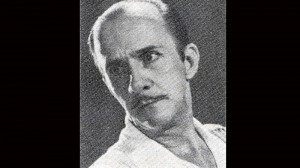Carlos Vander Tolosa: The Philippines’ Cecil B. DeMille
Film historians can’t make up their minds on which came first, “Collegian Love” or “Oriental Blood,” but none can dispute the fact that the director of these two silent films, both made in 1930, was the closest that Philippine cinema could get to Hollywood’s most renowned director, Cecil B. DeMille.
Not even DeMille could boast of having used in his “Ten Commandments” film genuine gold and silver kris weapons, the likes of which director Tolosa made possible for his leading man, Jose Corazon de Jesus Jr. to fight his Moro foes with in the movie, “Oriental Blood.”
The film producer, Carmen Concha, a professional costume designer, was a personal friend of the museum director, Don Miguel Iryarte. He did not hesitate to grant her his permission when it was sought, courtesy of Sen. Hadji Hutu, adviser on Moro custom. When shown, the film was a big success, artistically and financially.
According to Vicente Salumbides, author of Motion Pictures in the Philippines, (1952), “Collegian Love” was written and directed by Carlos Vander Tolosa and produced in 1929 by Angel Garchitorena under Araw Movies. The stars were Naty Fernandez and Gregorio Fernandez. By this time, Tolosa’s fee was already P1,000, making him the highest-paid director in the movie circuit, but Garchitorena paid it anyway.
Tolosa was the only movie director who successfully launched the three biggest movie studios at the advent of talking pictures: Parlatone-Hispano Filipino with “Diwata ng Karagatan,” 1936; Sampaguita Pictures Inc. with “Bituing Marikit,” 1938, and LVN Pictures with Giliw Ko,” 1939.
Post-war pictures
His post-war pictures include “Sunset Over Corregidor” for X’Otic Films; “Siete Dolores” for Nolasco Bros. Films; “Kalbaryo ni Hesus” for Lebran; and “Darna at ang Babaing Lawin” for Fernando Poe’s Royal Productions.
Carlos Vander Tolosa was born in Manila on July 6. 1902. The son of an American father, Henry Vander Voori, and a Spanish mother, Paquita Tolosa, he finished commerce in Ateneo de Manila.
After the war, he returned to Sampaguita Pictures and made it his home studio. He directed a remake of his pre-war film, “Bituing Marikit,” Reprising the roles of Elsa Oria and Ely Ramos was the new love team of Amalia Fuentes and Juancho Gutierrez. Then he converted the Vera Perez gardens in the Gilmore studio into a jungle in the heart of the metropolis for “Tanzan the Mighty,” starring Dolphy in the title role. It was so successful that a sequel was made two years later, “Tanzan Versus Tarsan.”
Before he died in the mid-’60s, Tolosa directed a mother-and-daughter team-up of Carmen Rosales and Susan Roces with Rosemarie in “The Dolly Sisters,” and true to his DeMille form, he also made a parody of Hollywood’s “Gunfight at OK Corral” by way of the Filipino cowboy comedy film, “Barilan sa Baboy Koral” starring Dolphy and Panchito.
